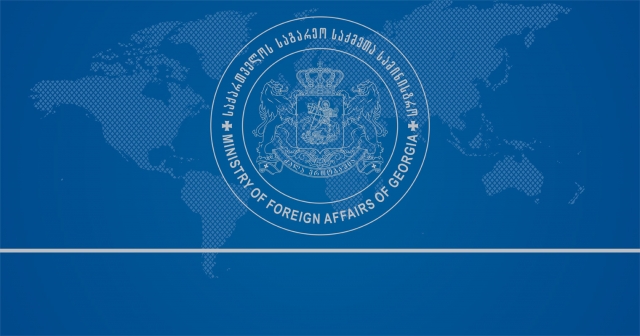Georgia Supports UK, Expels Russian Diplomat
Georgia’s Ministry of Foreign Affairs announced in a statement on Thursday that they will be expelling one member of staff from the Russian Federation Interests Section at the Embassy of Switzerland in Tbilisi, giving this person one week to leave.
“…A member of staff of the Russian Federation Interests Section at the Embassy of Switzerland in Tbilisi is requested to leave Georgia within 7 days.”
The statement goes on to express Georgia’s solidarity with the UK.
“The Ministry expresses solidarity with the United Kingdom, sharing the position of the United Kingdom as well as of the international community.”
Included is also Georgia’s condemnation of the alleged actions by the Russian Federation.
“The Ministry of Foreign Affairs condemns the use of chemical weapons on the territory of the United Kingdom that caused the grave human suffering of three individuals and posed a serious threat to the lives and health of others. This represents aserious challenge to common security.”
Since the poisoning of Sergei Skirpal and his daughter Yulia on March 4 in Salisbury, UK, this makes a total of 104 expelled Russian diplomats around the world. It is believed to be the largest collective expulsion of Russian intelligence officers ever.
Countries to have expelled diplomats so far are the UK (23); US (60); France (4); Germany (4); Poland (4); Czech Republic (3); Lithuania (3); Denmark (2); Netherlands (2); Italy (2); Spain (2); Estonia (1); Croatia (1); Finland (1); Hungary (1); Latvia (1); Romania (1); Sweden (1); Ukraine (13); Canada (4); Albania (2); Norway (1); and now Georgia (1).
On the afternoon of March 4 in Salisbury, UK, Sergei Skripal, 66, and his daughter Yulia, 33, were found unconscious on a bench next to a shopping mall. They were moved to hospital where they are still fighting for their lives.
Sergei Skripal is a former Russian Colonel who was convicted by Moscow of spying for the UK. His family told reporters that he believed the Russian Secret Service might come after him at any time. Mr. Skripal’s wife, brother and son have died, some under suspicious circumstances, over the past two years.
Foreign Secretary Boris Johnson did not place blame on any parties but said that Russia was “a malign and disruptive force.” He added that the UK would respond “robustly” if any evidence of Russian involvement was found.
Russia denied involvement and said that it had “no information” about what could have caused the incident, and that they were open to working with British police if required. The Russian Embassy in London said “media reports create an impression of a planned operation by the Russian special services, which is completely untrue.”
Just eight days later, Nikolai Glushkov, 68, who was associated with a leading critic of Vladamir Putin, was found dead in London. Police said his death was “unexplained.”
“A post-modern examination will be held in due course,” police said at the time. “The death is currently being treated as unexplained.”
The Prime Minister of the UK, Theresa May, said that “either this was a direct action by the Russian state against our country, or the Russian government lost control of its potentially catastrophically damaging nerve agent and allowed it to get into the hands of others.”
Spokesperson for the Russian Foreign Ministry, Maria Zakharova, said May's statement was “an unprecedentedly crude provocation.” She added it was “categorically unacceptable and unworthy” and that the UK government had “seriously aggravated” relations by announcing a “whole set of hostile measures.”
Russia has also accused the UK of breaching the chemical weapons convention by refusing to supply a sample of the nerve agent used against Skripal.
Zakharova called the UK “fully-fledged liars." She added that it has no idea about professionalism or diplomacy, and that Russia would take “fitting... symmetrical measures that are completely appropriate for the situation.”
By Tom Day












